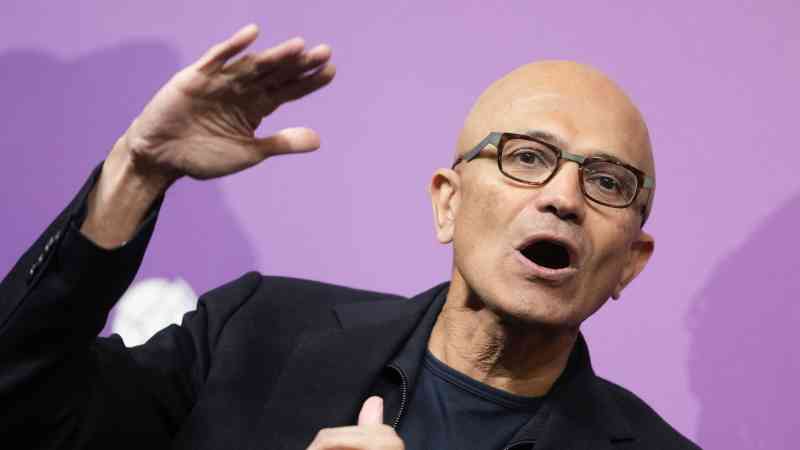Google’s days as the world’s dominant search engine could be numbered, the boss of Microsoft implied as he said that generative artificial intelligence would “reset” how information was found and distributed.
However entrenched the verb “to Google” might seem, Satya Nadella said internet search was “ripe for disruption”.
Speaking to an audience at Chatham House in London before a visit to the World Economic Forum in Davos, Nadella said: “I think this generation of AI technology will reset how we seek data, how we seek answers, how we seek information and even how information gets created and distributed.”
Microsoft is one of the world’s leaders in the development of generative AI, which it is embedding into its popular business software products. It has put more than $10 billion into OpenAI, the creator of ChatGPT, and the two businesses have a close partnership, with Nadella, 56, and Sam Altman, 38, the AI company’s chief executive, frequently appearing together.
Technology companies are experimenting with the future of finding information online and how traditional links and advertising could be integrated into a chatbot format. In February last year Microsoft integrated ChatGPT’s capabilities into Bing, its own search engine, in a direct challenge to Google. Bing has endured years in Google’s shadow, with a mere 3 per cent of the market compared with its rival’s 90 per cent. In a lawsuit Google, which is owned by Alphabet, once claimed that the most-searched-for term on Bing was “Google”.
It is a highly lucrative sector. Phil Ockenden, chief financial officer of Microsoft’s search division, told analysts last year: “For every one point of share gain in the search advertising market, it’s a $2 billion revenue opportunity for our advertising business.”
In a conversation with Sir Simon Fraser, a former diplomat and senior adviser at Chatham House, the Microsoft chairman and chief executive said that journalists and publishers should “welcome” the disruption to their industry caused by the rise in artificial intelligence. “We are having a reset, it cleans up some of the unintended issues of previous generations,” he said.
His comments to content creators come at a sensitive time as many worry that their intellectual property is being used to to train Microsoft’s AI models without recompense. Last month The New York Times launched a lawsuit against Microsoft and OpenAI over copyright infringement, alleging that the technology companies used its information to “free-ride”. OpenAI said that the litigation was a “disappointment and a surprise” and that it was “without merit”.
Nadella will be a key figure at the World Economic Forum this week, where AI is dominating discussions between political and business leaders grappling with the concerns and opportunities presented by the technology in a year of several significant elections.
Microsoft was considering the risks of bias and electoral interference in its engineering as it developed its AI products, Nadella said. “There is no question that, with generative AI, election interference can be accelerated,” he said. “Some of the things we are doing are around content ID and ensuring veracity of content in the media landscape. There are decent technical solutions.”
AI would not lead to job losses, he said, but rather would change the type of jobs available and would increase the need for re-skilling. “We should not fall for what economists call the lump of labour fallacy,” he said, referring to the theory that there is a fixed amount of work in the economy and that increasing the number of workers decreases the amount of work. “There will be jobs, the question is the shape of these jobs.”
He also welcomed the increasingly heavy scrutiny of AI and admitted that in the past technology businesses had “moved fast” and then dealt with the “unintended consequences” of those actions.
